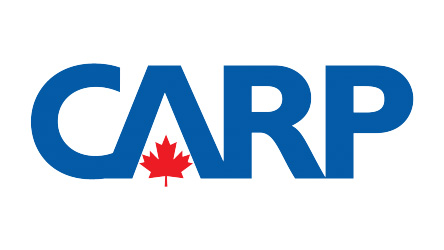

Zoomer panel looks at ways to ensure Canadians – especially older Canadians who are most affected – get access to advances in cancer diagnosis and treatment
TORONTO, September 30, 2019 – Canada is in the midst of a rising tide of cancer cases that, due to the aging of the population, won’t slow down any time soon.
Canadian Association of Retired Persons (CARP) Chief Policy Officer Marissa Lennox moderated a recorded Zoomer panel to discuss a vital question for CARP members: “Is our health system ready to care for a growing senior population with cancer?” The discussion is now available on Youtube and CARP’s website, www.carp.ca.
Lennox set the stage with cold statistics from the Canadian Cancer Society: “One in every two Canadians will get cancer in their lifetime and one in four Canadians will die from it.” She went on to underscore cancer’s disproportionate impact on older Canadians, “since 90% of Canadians with cancer are aged 50 years and older. The challenge is getting bigger all the time due to an aging population that will mean a 40% increase in cancer incidence over the next decade.”
Panelists included oncologist and President of Lung Cancer Canada, Dr. Paul Wheatley-Price, geriatric oncologist Dr. Tina Hsu and lung cancer survivor Dr. Larry Frydman. All three underscored the good news of diagnostics and treatments that are catching cancers earlier and boosting hope for survival and improved quality of life.
“There have been great advances in diagnosis and treatment of lung cancer, doubling the survival rate in the past five years. That’s more progress than we saw in the 30 years before that,” indicated Dr. Frydman.
When asked by an audience participant about one recent innovation – cancer immunotherapy – Dr. Frydman described it as medicine that “stimulates your own immune system so that it can kick in and realize that the cancer cells are foreign to your body and that they have to kill them.”
According to Dr. Wheatley-Price, when patients respond to these types of therapies, they can work for years, which you never used to see in cancers such as lung cancer, and with fewer side effects than chemotherapy.
Lennox reviewed a recent CARP survey of almost 4,000 members which showed that Canadians have little confidence that the health system is prepared for the growing number of cancer cases. According to the survey, “more than 90% said their provincial healthcare system should make new investments to be better prepared to treat cancer and that increasing cancer screening and providing timely treatment should be the healthcare system’s top priority.”
Dr. Wheatley-Price suggested that “the federal government has a key role to play by increasing federal Canada Health Transfers to the provinces so they are equipped to deal with the growing needs of cancer patients.” In terms of how to better treat lung cancer, which is the most diagnosed and most lethal of cancers in Canada, he stressed the importance of increased screening and rapid adoption of new therapies, such as immunotherapy and targeted oral cancer drugs.
Dr. Hsu also highlighted the importance of providing care that is tailored to the needs of older Canadians. “We don’t do enough to inform clinicians about treating older people with cancer. Therapies aren’t usually tested in older people and we don’t know enough about their preferences and treatment goals. We need to know and do more for older patients.”
All three panelists urged Canadians to become more engaged and involved in federal and provincial elections and to educate politicians and government officials on the issue so that preparing our cancer systems becomes a political priority.
About CARP
CARP (Canadian Association of Retired Persons) is Canada’s largest advocacy association for older Canadians, with more than 320,000 members. As a non-partisan association, CARP is committed to working with all parties in government to advocate for older Canadians. Its mission is to advocate for better healthcare, financial security and freedom from ageism. CARP members engage in polls and petitions, email their elected representatives, connect with local chapters and share stories and opinions on urgent issues. For more information, visit www.carp.ca.
For more information:
Anthony Quinn
Chief Communications Officer, CARP
416-363-2277 x.274
anthony@carp.ca
